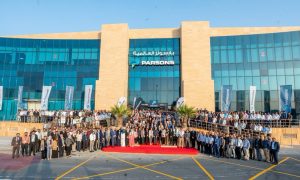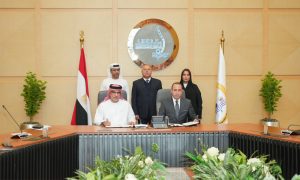Qatar World Cup workers ‘still being abused’ – Amnesty
Allegations of ‘squalid’ housing, passports being confiscated

Migrant workers employed on a World Cup stadium refurbishment project in Qatar are still suffering from abuses, despite promises to boost welfare standards, according to Amnesty International.
Dozens of migrant construction workers from countries like Nepal and India were charged high recruitment fees by agents in their home countries, were housed in “squalid” accommodation, and barred from leaving the country by employers who confiscated their passports, Amnesty said in a report.
Authorities in Qatar agreed with some of the issues raised by Amnesty but said many of the concerns have already been addressed.
Amnesty last year identified more than 100 migrant workers employed on the Khalifa Stadium renovation project who were allegedly subjected to human rights abuses by their employers.
The human rights watchdog carried out research on the Khalifa Stadium refurbishment and the Aspire Zone – where the stadium is located – between February 2015 and February 2016. Researchers visited Qatar three times and interviewed 234 men in total working for the companies said to be responsible for the abuse.
Among the most frequently reported issues were employers allegedly deceiving workers about the nature of the work for which they were being hired, or the salary they would be paid. There were also allegations of: poor living conditions; delays in salary payments; and workers being denied the right to leave Qatar due to the country’s sponsorship system.
Migrant workers in Qatar cannot leave the country without an exit permit from the authorities, which can only be obtained with the sponsor’s approval. This system “gives employers an excessive level of control over the lives of foreign workers” and violates the right to freedom of movement, Amnesty said.
“My life here is like a prison,” Deepak from Nepal, who worked as a metal worker on the Khalifa Stadium refurbishment in May 2015, told Amnesty International. “The work is difficult, we worked for many hours in the hot sun.”
Deepak’s efforts to complain about his situation were in vain, he said, as he was told by his manager that if he wanted to stay in Qatar, he should “be quiet and keep working.”
In the wake of international pressure, Qatar’s Supreme Committee for Delivery and Legacy, the body responsible for the construction of stadiums and other projects for the 2022 FIFA World Cup, published its Worker Welfare Standards in 2014. These standards are mandatory for all businesses undertaking work or providing services related to the World Cup.
Despite steps taken by Qatar to address grievances, like the wage protection system introduced last year, gaps remain in their implementation, Amnesty said. It said one such issue is a focus on major contractors, rather than smaller sub-contractors who are more likely to be involved in recruitment malpractices.
Other claimed problems include an over-reliance on self-auditing, and a lack of enforcing ethical recruitment processes. All the 234 workers interviewed by Amnesty said they had paid fees to recruitment agents in their home countries to get a job in Qatar, with the amounts ranging from $500 to $4,300.
Hassan Al Thawadi, Qatar’s 2022 committee chief, said Amnesty had highlighted “malpractices” faced by some of the 5,100 construction workers building stadiums, a figure expected to increase to 36,000 in the next two years.
“We’ve always recognised that we don’t have a magic wand that could fix the matter from the very beginning,” Thawadi said, quoted by Reuters. The World Cup is a “catalyst for change”, committee chief went on to say. “We’re resolving gaps day by day,” he added.

























